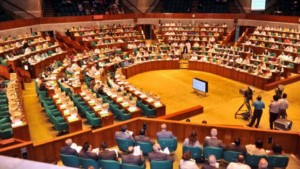by John Evans on 3rd June 2020
Governments must learn from the financial crisis if they are not to repeat the errors of the recovery from it.
Economic commentators have cautioned against drawing parallels between the economic impact of the Covid-19 pandemic and that of the financial crisis of 2008-09 and the ensuing great recession. Yet as countries move out of lockdown and attention shifts to avoiding a lasting depression, lessons can still be drawn from the more recent economic trauma. When the financial crisis hit, firms operating in ‘flexible’ labour markets, such as the United States, laid off their workforces and unemployment soared. Unions and businesses in ‘corporatist’ labour markets, most notably Germany, came together to negotiate agreements to keep workers employed in firms facing falling demand, in exchange for subsidised short-time-working schemes. When recovery occurred, employment picked up more rapidly there.
Valuing workers
The lesson is that it pays to value workers and not treat them as disposable—so that when the pandemic recedes production can be increased as quickly as possible. It has made many governments realise the importance of keeping workforces together through job attachment, social pacts, short-time working and ‘furlough’ schemes. These schemes need to be institutionalised so that they can be made operational quickly should the need arise.
Lessons should also be drawn from the revealed costs of insecurity. Non-standard work, the ‘gig’ economy and platform work became fashionable, prior to the Covid-19 crisis, as the new ‘flexibility’. The economic risk was shifted on to these workers from employers or the state. In the pandemic they have however found themselves without income or employment as customers dried up overnight—after 2010, as stimulus gave way to austerity policies, social protection was cut back. All workers need social protection and employment status.
The appreciation of health workers and their protection has justifiably become central in the debates over responses to the pandemic. The crisis has also shown the essential nature of other service workers: cleaners, refuse collectors and private-sector workers in retailing and food production. These are low-pay sectors where workers are being required to work in exposed and dangerous conditions.
The pandemic has shown the importance of safety at work from a communal point of view: if essential workers fall sick, the health response to the crisis will break down. If employment is to respond as workplaces reopen then workers must have trust that they will be safe. Unions play a central role in ensuring that workplace rules on health and safety are applied.
Work organisation will change far more radically than thought possible only three months ago: the growth of teleworking will only be one example. Negotiations are required to protect workers in new forms of working—this requires expanded unionisation. Workers must be encouraged in, not penalised for, joining or forming trade unions. Employees must be given rights to codetermination, information and negotiation, in exchange for the social sacrifices made during the pandemic. There is an opportunity to expand real industrial democracy.
A new, post-crisis social contract must ensure decent pay, working conditions and safety for groups of workers so far forgotten.
Rising deficits
Public deficits will rise from the OECD average before the pandemic of 70 per cent of gross domestic product. Rough calculations suggest an increase of 30 percentage points of GDP, provided that the pandemic is brought under control within six months. Financing this for industrialised countries is feasible but measures to absorb deficits must be fair.
Nevertheless, there is a risk of capital flight from individual countries hit hard by the pandemic with already high borrowing requirements. In 2010, many governments pushed prematurely for the reduction of public debt. This delayed the recovery from crisis and increased social inequality. There is a consensus among economists that in Europe there should be mutualisation of debt through the joint issuing of pandemic bonds and an ambitious European investment plan. The risk, however, remains that some governments will again block the necessary action.
The need to embed social justice must also apply to the design, implementation and financing of the exit strategies and recovery measures that will be put in place as the health crisis begins to recede. The mistakes of 2010 must not be repeated.
Developing countries
Although increases in industrialised counties’ public debt may prove sustainable and their central banks have not been slow to inject liquidity into the economy, few developing countries have this luxury. In the 2008-09 financial crisis, developing and emerging economies had more limited exposure to the banking system and toxic assets. But the economic effects of the pandemic hit developing countries with devastating speed, with unprecedented capital flight. The sudden closure of international transport disrupted supply chains and closed service sectors such as tourism. Commodity-price collapses hit commodity-exporting countries.
The effects on employment were immediate. The majority of the estimated two billion informal workers in the world are in developing and emerging countries and there are few safety nets for those who have lost jobs and livelihoods overnight. Oxfam has estimated the pandemic could plunge an additional half a billion people into extreme poverty.
Even from the limited perspective of self-interest, industrialised countries must act to support developing countries. If the pandemic spreads further in the developing world, there will be second and third waves of infection in those countries coming out of lockdown. There has also been a call for Special Drawing Rights from the International Monetary Fund to support liquidity there. In the financial crisis, the IMF issued an extra $250 billion in SDRs—at least $500 billion are needed now.
Conditionality
A lesson from 2010 is that exit strategies pushed governments to withdraw responsibility and influence over firms too rapidly, which led to private debt becoming public debt. This cannot be allowed to happen as economies emerge from the pandemic. Taxpayers’ money must carry conditionality in avoiding excessive executive pay, ensuring companies play the social roles expected of them in the crisis and, in the longer term, minimising corporate-tax evasion. The Responsible Business Conduct agenda must be given real teeth by governments insisting firms observe good-practice standards, such as the OECD Guidelines for Multinational Enterprises, as well as ensuring effective enforcement mechanisms are put in place.
This should also be the occasion to learn from some of the unintended environmental consequences of the confinement measures, to promote a recovery that is equitable and environmentally sustainable. Moving to low-carbon solutions to stem climate change requires that countries introduce environmental conditionality into recovery programmes too.
International co-operation
In 2009, international co-operation halted an escalating crisis. The G20 London and Pittsburgh summits agreed on measures which avoided the recession becoming a depression on the scale of the 1930s. The error was that they retreated from this commitment prematurely. So far, the president of the US—the world’s most influential multilateral power—has rejected co-operation and denigrated international efforts.
Beyond this crisis, the reconstruction of supply chains and a more socially and environmentally sustainable globalisation will, however, require stronger international co-operation, and a more effective G20. Unless governments show enlightened self-interest in the international sphere and increase their support for the multilateral system, they will repeat the mistakes of the past.
In 1940, in ‘How to pay for the war’, John Maynard Keynes wrote: ‘I have endeavoured to snatch from the exigency of war positive social improvements, including universal family allowances in cash, the accumulation of working class wealth under working class control, a cheap ration of necessaries and a capital levy (or tax) after the war, [it] embodies an advance towards economic equality greater than any which we have made in recent times.’ Governments must learn from Keynes now.
(John Evans is a visiting fellow at the University of Greenwich and academic visitor at St Peter’s College, Oxford University. Until 2017 he was general secretary of the Paris-based Trade Union Advisory Committee to the OECD.)
– Social Europe




